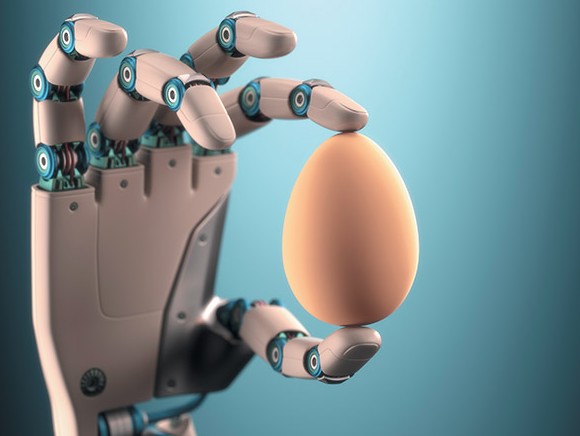
The Dutch Topsector Agri & Food has approved eight applications for hightech seed money projects in which companies from the agrifood sector will work together with hightech companies to develop hightech solutions. The projects range from the development of smart arable farming systems to robots in poultry houses.
Hightech and ICT advancements related to sensors, big data, robotisation, intelligent materials and suchlike are moving tremendously fast and offer interesting opportunities for the agrifoodsector. To help companies take advantage of these opportunities, the Dutch Top Sectors of Agri & Food, Horticulture & Plant Material and HighTech Systems & Materials have agreed to collaborate within the crossover programme called ‘HighTech to Feed the World’. The call for proposals attracted 19 responses. The available budget (€300,000) has been shared among eight successful applications, with each one receiving a maximum of €50,000.
The hightech seed money projects are the first initiatives within the crossover programme. Within these projects, companies will work together with experts from the research institutes at Wageningen UR to investigate the feasibility of an idea. In addition, the companies receive support to form a consortium for the collaborative further development of the innovative idea.
Two of the projects are to research the feasibility of hightech solutions for poultry farming. The first project is focused on the development of a robot and sensor system that can perform a number of the farmer’s tasks in the poultry house while also monitoring the birds’ health and behaviour. The second project is to investigate how ICT applications can optimise collaboration in the production chain.
For arable farming and open-field vegetable production, a group companies will explore how large-scale mechanisation can be replaced by lightweight, autonomous, innovative technologies that can provide customised crop treatments. The benefits of this approach include improved soil quality, a higher yield and more efficient use of energy, crop protection agents and fertilisers. A different project will investigate how arable farmers from less-developed countries can gain access to Dutch expertise relating to topics such as irrigation. This will enable those arable farmers to increase their production levels and hence improve their competitiveness.
Source: ©iStock/ktsimage